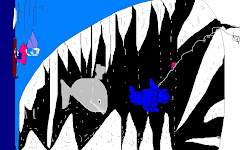Acetaminophen For Mental Health Relief
By Rick Nauert PhD Senior News Editor
Reviewed by John M. Grohol, Psy.D. on December 22, 2009 A provocative new research study investigates the possibility that over-the-counter pain relief drugs may be helpful for treatment of depression and anxiety.
Use of OTC medications for physical aches and pain has been commonplace for decades.
A research team led by psychologist C. Nathan DeWall of the University of Kentucky College of Arts and Sciences Department of Psychology has uncovered evidence indicating that acetaminophen (the active ingredient in Tylenol) may blunt social pain.
“The idea that a drug designed to alleviate physical pain should reduce the pain of social rejection seemed simple and straightforward based on what we know about neural overlap between social and physical pain systems. To my surprise, I couldn’t find anyone who had ever tested this idea,” DeWall said.
According to a study due to be published in the journal Psychological Science, DeWall and colleagues were correct. Physical and social pain appear to overlap in the brain, relying on some of the same behavioral and neural mechanisms.
DeWall and colleagues investigated this connection through two experiments. In the first experiment, 62 healthy volunteers took 1,000 milligrams daily of either acetaminophen or a placebo. Each evening, participants reported how much they experienced social pain using a version of the “Hurt Feelings Scale” – a measurement tool widely accepted by psychologists as a valid measure of social pain.
Hurt feelings and social pain decreased over time in those taking acetaminophen, while no change was observed in subjects taking the placebo. Levels of positive emotions remained stable, with no significant changes observed in either group. These results indicate that acetaminophen use may decrease self-reported social pain over time, by impacting emotions linked to hurt feelings.
“We were very excited about these initial findings,” DeWall said.
“The next step was to identify the neural mechanisms underlying the findings.”
In the second experiment, 25 healthy volunteers took 2,000 milligrams daily of either acetaminophen or a placebo. After three weeks of taking the pills, subjects participated in a computer game rigged to create feelings of social rejection.
Functional magnetic resonance imaging (fMRI) employed during the game revealed that acetaminophen reduced neural responses to social rejection in brain regions associated with the distress of social pain and the affective component of physical pain (the dorsal anterior cingulate cortex and anterior insula).
In other words, the parts of the brain associated with physical lit up in the placebo subjects when they were rejected, while the acetaminophen group displayed significantly less activity in these brain areas in response to rejection.
According to the academic paper detailing the experiments: “…findings suggest that at least temporary mitigation of social pain-related distress may be achieved by means of an over-the-counter painkiller that is normally used for physical aches and pains….
“Furthermore, many studies have shown that being rejected can trigger aggressive and antisocial behavior, which could lead to further complications in social life…. If acetaminophen reduces the distress of rejection, the antisocial behavioral consequences of rejection may be reduced as well.”
Researchers caution that readers should not immediately stock up on acetaminophen to ease social pain and anxiety, noting “[t]o be sure, our findings do not constitute a call for widespread use of acetaminophen to cope with all types of personal problems.
“Future research is needed to verify the potential benefits of acetaminophen on reducing emotional and antisocial responses to social rejection.”
Long-term use of acetaminophen has also been linked to serious liver damage, so it is important for patients to follow all package directions and consult their physicians if they are contemplating taking any medication for an off-label use.
“This research has the potential to change how scientists and laypersons understand physical and social pain.
“Social pain, such as chronic loneliness, damages health as much as smoking and obesity. We hope our findings can pave the way for interventions designed to reduce the pain of social rejection,” DeWall said
===============================================================================
The Chinese system views the liver as holding grief. The western view is use a pill to defeat the attempts to detoxify chemicals produced during stressors i.e. cortisols. It feels better until you die. I am glad someone is trying to find a use for a drug I no longer use die to its liver toxicity problems. The Dr I fired in 2006 was of the mind to add on to an already overloaded toxic load I had in my body. It works for some people it did not work for me. One more thought acetaminophen makes the pain of not only pain(sic) but also invisible pain of our social malaise. Brittany Spears ass used to do this for me. I am jaded.
Wednesday, December 23, 2009
Sunday, December 13, 2009
A Poem

Those who are strangers to war
Should devote themselves with fervor
To Music
Those who are strangers to war
Should devote themselves with fervor
To Music
Put down the fences and arms
Raise up your hearts and your voices
Turn off the burglar alarms
The world is a refuge of choices
Those who have given up hate
Are free to be part of the oneness
Do not compete or debate
Fullness is emptiness wholeness
All my Relations
All the Directions
All of the deepness
Inside of me
My mitochondria pulsing with hydrogen
A mystical miracle called ATP
For without this stuff there would be no me
Even though Geshe-la says this can't be
All who are strangers to war
Should devote themslves with fervor to music.
a 13th century mystic maybe influenced by Rumi.
Subscribe to:
Comments (Atom)
